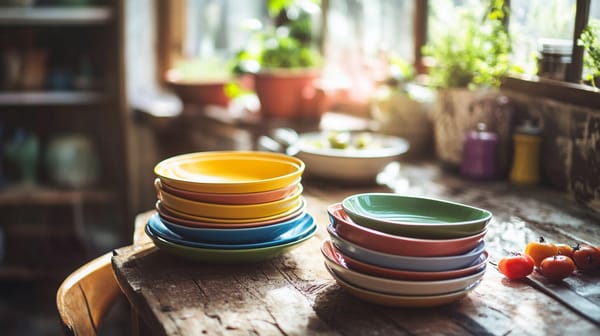The Surprising Truth About a 2,000-Calorie Diet

Understanding the 2,000-Calorie Standard
The FDA settled on 2,000 calories as the standard reference for nutrition labels after analyzing food consumption data from American men, women, and children. Surveys revealed an average daily intake of about 2,350 calories, but the FDA rounded down to 2,000 out of concern for overconsumption. So who might be someone who needs 2,000 calories a day? Calorie needs depend on factors like gender, age, weight, and activity level, but 2,000 calories suits a wide range of people, from a moderately active woman in her mid-20s to an overweight middle-aged man trying to lose weight.
A Sample 2,000-Calorie Meal Plan
If 2,000 calories aligns with your goals, here's what a day of healthy, nutrient-rich meals and snacks could look like:
Breakfast (390 calories)
- 1 cup cooked oatmeal
- 1/2 cup blueberries
- 2 tablespoons chopped walnuts
- 1 hard-boiled egg
Morning Snack (210 calories)
- 1 medium apple
- 2 tablespoons almond butter
Lunch (540 calories)
- Loaded Greek Salad: 3 cups romaine, 1/4 cup each cherry tomatoes, bell pepper, cucumber, feta, 2 tbsp red onion, 8 Kalamata olives
- Dressing: 2 tbsp olive oil, 1 tbsp lemon juice, 1/4 tsp oregano, black pepper
Afternoon Snack (160 calories)
- 1 cup plain low-fat Greek yogurt
- 1/4 cup sliced strawberries
Dinner (590 calories)
- Burrito Bowl: 3 oz grilled chicken, 2 cups romaine, 1/2 cup brown rice, 1/4 cup each bell pepper, corn, avocado, black beans, 2 tbsp red onion, 1/4 lime, 2 tbsp sour cream, 1/4 cup salsa
Dessert (110 calories)
- 1 oz dark chocolate
Making It Work For You
Like what you see but don't have 2,000 calories to work with? Stick to the breakfast, lunch, and dinner here for a delicious and satisfying 1,500-calorie day. The key is choosing wholesome, filling foods to keep you nourished while aligning with your personal calorie goals. With some simple modifications, the FDA's 2,000-calorie reference point can be a helpful starting place for building a balanced meal plan.




